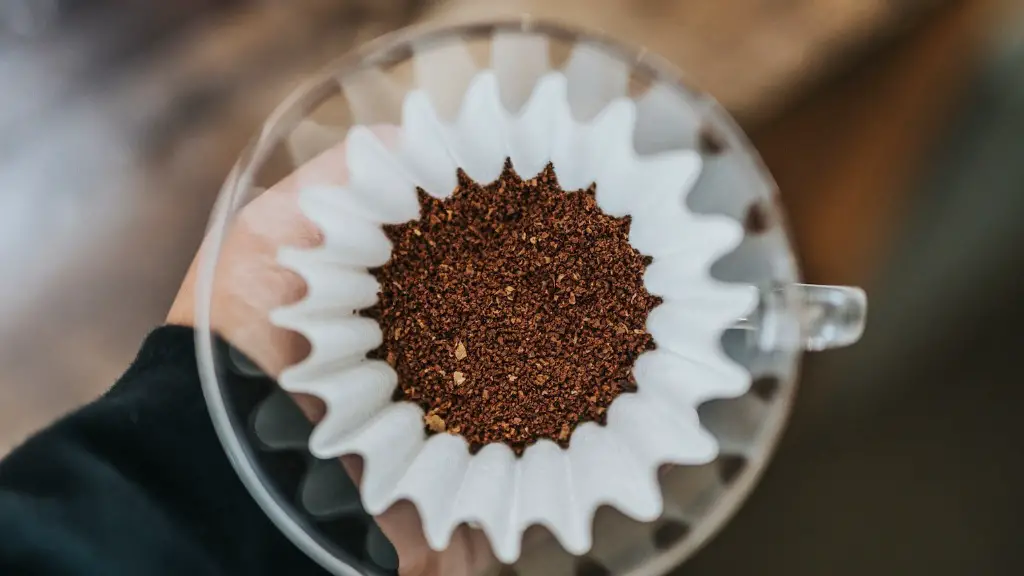If you follow the Fodmap diet, you know that cutting out certain types of food can be difficult. Whether you are cutting out sugar and starches or just trying to avoid high fructose corn syrup, knowing what you can and cannot have is a essential to following the diet. One of the most common questions asked by Fodmap dieters is whether or not they can drink coffee. Coffee is a staple of many people’s diets and can be difficult to part with. Fortunately, the answer is yes, you can drink coffee on the Fodmap diet.
It’s important to bear in mind that there are some caveats when it comes to drinking coffee on a Fodmap diet. Coffee contains caffeine, and caffeine can cause gastrointestinal problems in some people. If you’re sensitive to caffeine this could be a potential problem. Additionally, some people find that drinking coffee, even decaffeinated coffee, can aggravate IBS symptoms. People with sensitive stomachs may want to avoid coffee altogether or stick to decaffeinated versions.
At the same time, coffee does have its benefits for people on the Fodmap diet. Studies have found that coffee has anti-inflammatory benefits and may help to reduce the symptoms of IBS in some people. Additionally, coffee is a simple way to add flavor and variety to a Fodmap diet without adding too many calories or carbs. In other words, if you’re looking for an easy way to spice up your Fodmap diet, drinking coffee might be just the thing you need.
The key is to drink coffee in moderation. As with any food, too much coffee can be bad for you. Studies have found that drinking more than four cups of coffee per day can be bad for your health and could increase your risk of certain health conditions. If you’re on a Fodmap diet, it’s important to drink coffee responsibly and make sure you’re not overdoing it.
In conclusion, coffee can be enjoyed on a Fodmap diet, but it should be done in moderation. Coffee can be a great way to add flavor and variety to a Fodmap diet, but it’s important to remember that too much coffee can be bad for you. If you are sensitive to caffeine or if coffee aggravates your IBS symptoms, it’s best to avoid or limit your coffee intake.
Fodmap Free Alternatives
If you find that coffee does not agree with your Fodmap diet, there are some alternatives you can try. Many people on Fodmap diets have found that herbal teas can be a great alternative to coffee. Herbal teas can provide flavor, variety and comfort while still adhering to the Fodmap diet. Additionally, some herbal teas contain compounds such as flavonoids and antioxidants that can be beneficial for overall health and wellness.
Another option is chicory root. Chicory root is a natural vegetable that many people on a Fodmap diet choose to consume as an alternative to coffee. Chicory root is caffeine-free and provides an alternative for those who want to limit or avoid their caffeine intake. Chicory root has an earthy, slightly sweet and nutty flavor that many people find to be pleasant. It can also be used in baking recipes or added to smoothies for a boost of flavor without increasing carbohydrates or sugars.
Many people find that cutting out coffee is one of the most difficult aspects of a Fodmap diet, but there are plenty of alternatives you can try. With a bit of creativity and experimentation, you can find a great alternative to the traditional cup of coffee.
Health Benefits of Drinking Coffee
For those who enjoy coffee and are able to tolerate it are often surprised to hear that drinking coffee might actually be beneficial. Studies have shown that drinking coffee can improve alertness, focus, and mood and can even provide some health benefits. Studies have found that drinking coffee regularly can protect against certain types of cancer, protect against type 2 diabetes, reduce the risk of heart disease, improve cognitive function, and even protect against dementia and Alzheimer’s disease.
Of course, it is important to remember that too much coffee can be bad for you. Drinking more than four cups of coffee per day can disrupt your sleep, increase your risk of heart disease, and increase your risk of certain types of cancer. But if you stick to drinking one to three cups per day, you should be able to get all the health benefits without putting your health at risk.
In addition to its health benefits, coffee is also an enjoyable way to start the day. Many people find that a cup of coffee in the morning helps to wake them up and can give them an extra boost of energy. Additionally, coffee can provide a sense of comfort and relaxation. In other words, coffee can be both beneficial and enjoyable for those on the Fodmap diet.
Effects of Decaf Coffee
When it comes to coffee, there is often a debate about whether or not decaf coffee is better for you than regular coffee. The truth is that regular coffee does contain caffeine, which can be bad for you if consumed in excess. However, the amount of caffeine in a cup of coffee is relatively low and is not cause for concern in most cases.
Decaf coffee has its own set of benefits and drawbacks. On the one hand, decaf coffee is an excellent alternative for those who are sensitive to caffeine or who wish to lower their caffeine intake. On the other hand, studies have found that decaf coffee can have a laxative effect on some people and can cause an increase in gas and bloating in some individuals. Therefore, it is important to experiment with both regular and decaf coffee to see which one works best for you.
Additionally, keep in mind that decaf coffee still contains some trace amounts of caffeine. Therefore, it is important to pay attention to the caffeine content of decaf coffee and to drink it in moderation.
Milk and Cream in Coffee
When it comes to coffee and the Fodmap diet, milk and cream can be a tricky issue. Milk and cream contain lactose, which can be a trigger for some people on the Fodmap diet. Therefore, when adding milk or cream to coffee it is important to first make sure the milk or cream is lactose-free.
In addition, some people on the Fodmap diet find that certain types of milk can trigger their IBS symptoms, even if the milk is lactose-free. Therefore, it is important to experiment with different types of milk to see which one works best for you. For example, almond milk is a popular alternative to dairy milk and is often better tolerated by those on a Fodmap diet.
Finally, it is important to remember that milk and cream can add a substantial amount of calories and fat to a cup of coffee. Therefore, if you are looking to maintain a healthy weight, it is important to limit the amount of milk or cream that you add to your coffee.
Conclusion
In conclusion, it is possible to enjoy a cup of coffee while on a Fodmap diet. Coffee can provide flavor and variety to a Fodmap diet without adding too many calories or carbs. Remember, however, that it is best to drink coffee in moderation and to pay attention to the types of milk and cream you are using. If you find that coffee does not agree with your Fodmap diet, there are many alternatives that you can try, such as herbal teas or chicory root. Ultimately, it is important to experiment and find the best option for you.




